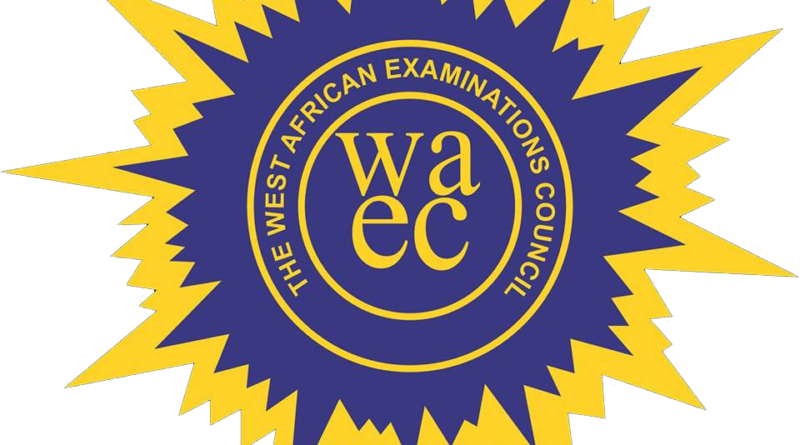WAEC Faces Backlash Over Glitched WASSCE Results
The West African Examinations Council (WAEC) has found itself at the centre of intense criticism and public outcry after technical glitches in its backend system led to errors in the 2025 West African Senior School Certificate Examination (WASSCE) results. The controversy has sparked protests from students, condemnation from parents, and fresh scrutiny of the Council’s proposed move to full Computer-Based Testing (CBT).
WAEC confirmed on Thursday that it had temporarily disabled access to its online result checker portal after detecting bugs during post-release quality checks. The glitch, which affected key subjects including mathematics, English language, biology, and economics, has led to widespread confusion and distress among candidates.
According to a statement by WAEC’s Head of Public Affairs, Moyosola Adesina, the Council had introduced paper serialisation in those subjects as part of its anti-malpractice measures, but internal audits revealed “technical bugs” in the released results.
“The Council, being a responsive body sensitive to fairness and professionalism, has decided to urgently review and correct the technical glitches,” the statement read. WAEC urged candidates who had already checked their results to do so again starting Friday.
This development comes on the heels of another controversy earlier in the week when WAEC announced that only 38.32% of the 1.96 million candidates who sat for the exam obtained credit-level passes in at least five subjects, including English and mathematics the lowest in ten years.
ALSO READ: Silent Casualties: Children Suffer as Divorce Quietly Rises in Nigeria
The dismal performance raised questions about the quality of education, systemic exam malpractice, and the readiness of institutions for a digital transition.
Reactions have been swift and intense. The National Association of Nigerian Students (NANS) harshly criticised WAEC’s leadership, accusing the Council of incompetence and causing avoidable emotional trauma for candidates.
“This is more than a tech failure. It is a leadership failure,” said NANS Assistant General Secretary, Adejuwon Olatunji. “You don’t roll out a new system without proper testing. Students were misled into thinking they had failed some even couldn’t access their results. WAEC must be held accountable.”
Parents, under the umbrella of the National Association of Parent-Teacher Associations of Nigeria (NAPTAN), echoed these concerns. Its president, Haruna Danjuma, commended WAEC for admitting fault but criticised the planned rollout of full CBT for future exams as “unrealistic”.
He argued that most students, particularly in rural areas, lack computer literacy and access to basic infrastructure. “If WAEC is serious about CBT by 2026, let the government start equipping schools now,” Danjuma said.
On social media, Nigerians vented their frustration, with many questioning WAEC’s haste in releasing results without completing proper quality assurance. Some demanded script reviews; others called for resignations.
“Why the rush?” asked one user, @peculiarpat1. “Would WAEC have corrected these errors if the public didn’t complain? This culture of negligence must stop.”
Another, @SaintSeyiB, warned that WAEC could face lawsuits if errors in results were not transparently corrected. “This is not just a tech issue. it’s about trust.”
The Nigeria Union of Teachers (NUT) also weighed in, rejecting attempts to pin the blame solely on educators. NUT President, Audu Amba, acknowledged the need for WAEC to improve internal checks but highlighted deeper systemic issues.
“No teacher goes into the classroom intending to fail students. But we face poor infrastructure, lack of resources, and minimal government support,” Amba said. He emphasised that effective education requires cooperation from students, parental involvement, and strong policy commitment from the government.
In response to the uproar, the Federal Ministry of Education confirmed on Thursday evening that the glitch had been resolved. Director of Press, Folasade Boriowo, praised WAEC’s swift action and reiterated the Ministry’s commitment to fairness and transparency in assessment processes.
The Ministry also reaffirmed its support for phased implementation of CBT beginning in November 2026, with the objective sections of WASSCE and NECO exams set to go digital first.
“This reform is necessary to restore credibility, curb malpractice, and ensure that certificates earned by Nigerian students reflect true merit,” the statement read.
As WAEC races to correct the errors and regain public trust, stakeholders continue to call for greater accountability, transparency, and strategic investment in education infrastructure. With student futures hanging in the balance, all eyes remain on how the Council will navigate this crisis and implement reforms in a system already under immense pressure.
Content Credit: Ohidah Oluwaferanmi
Image Credit: West africaweekly.com




